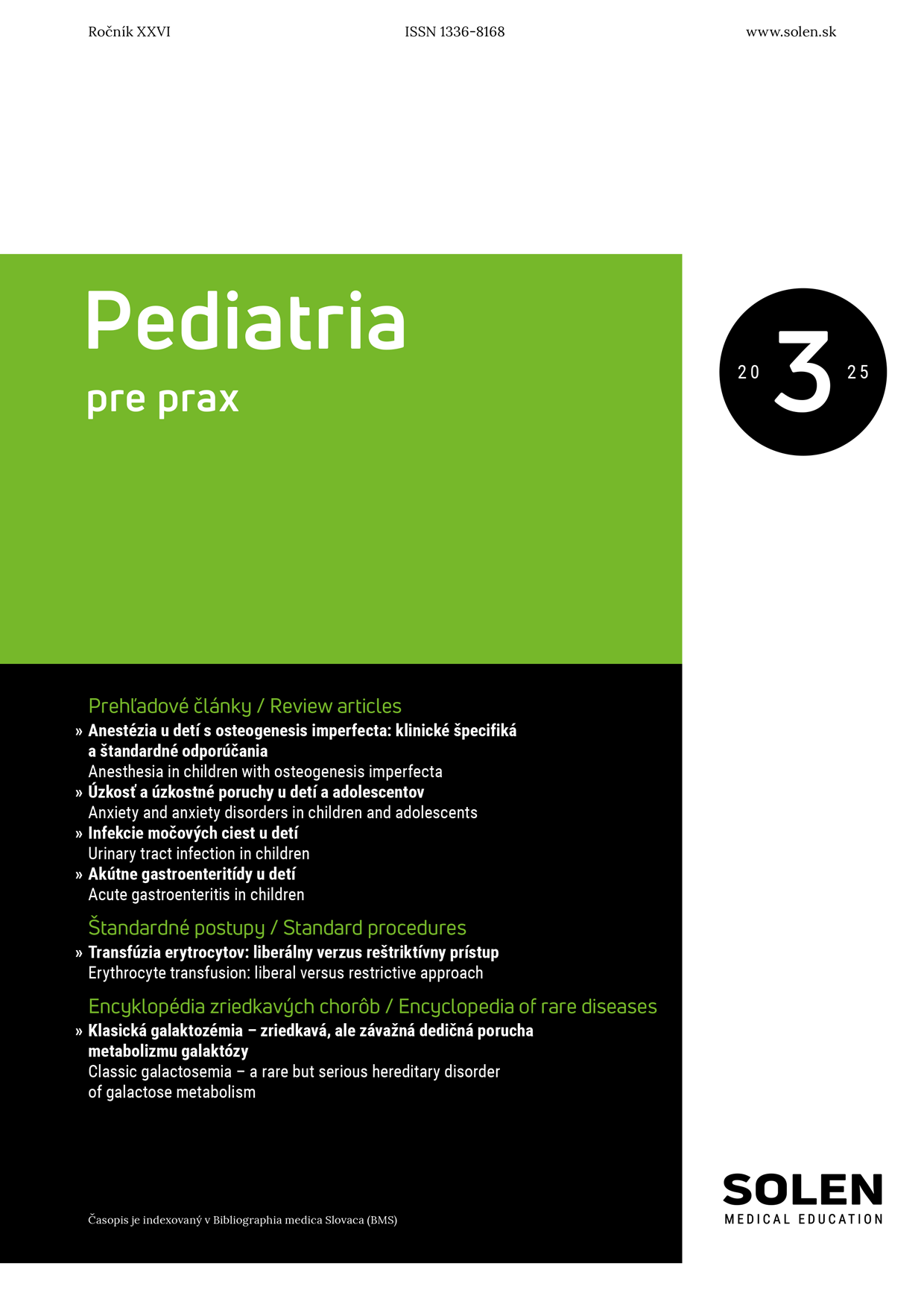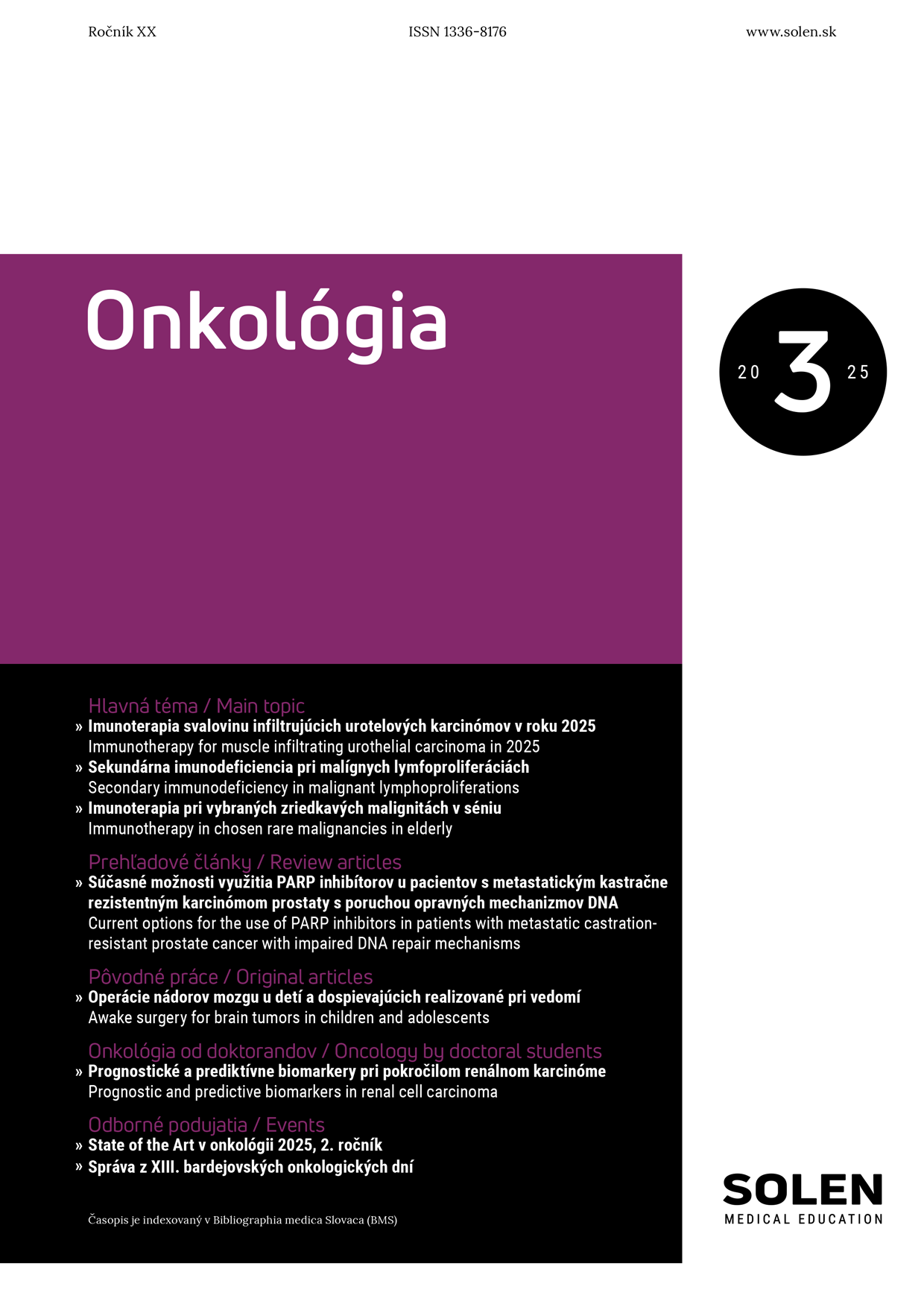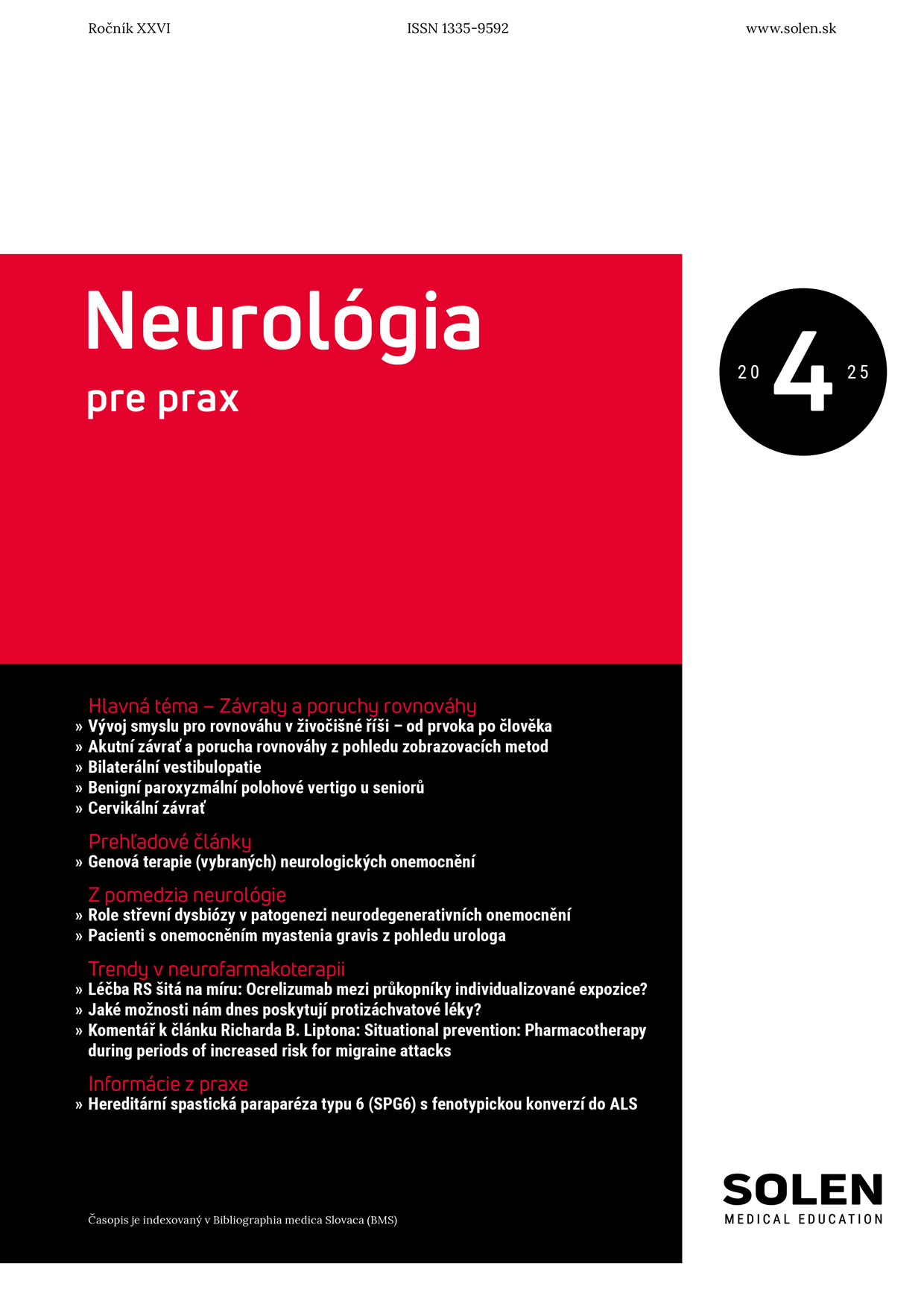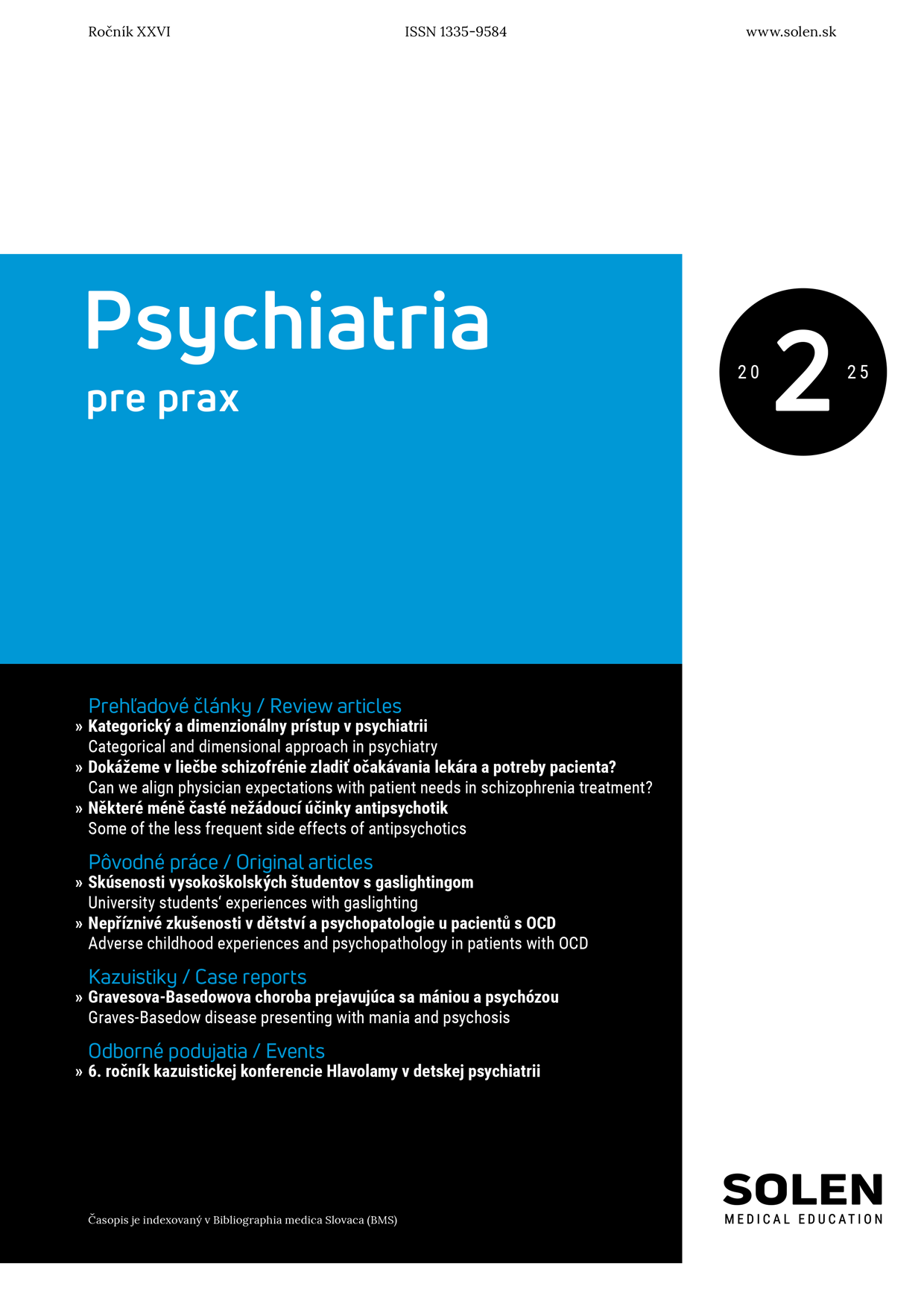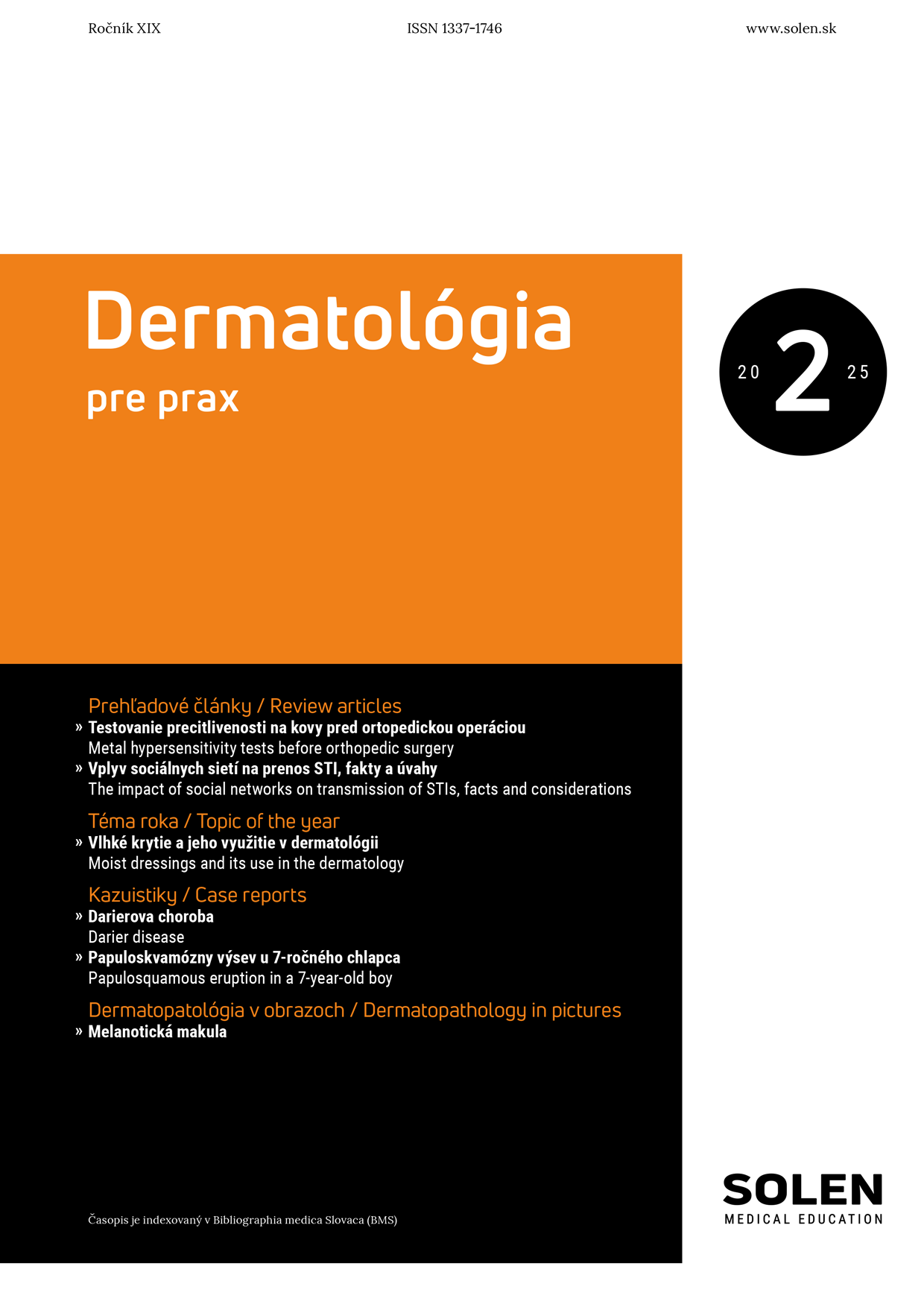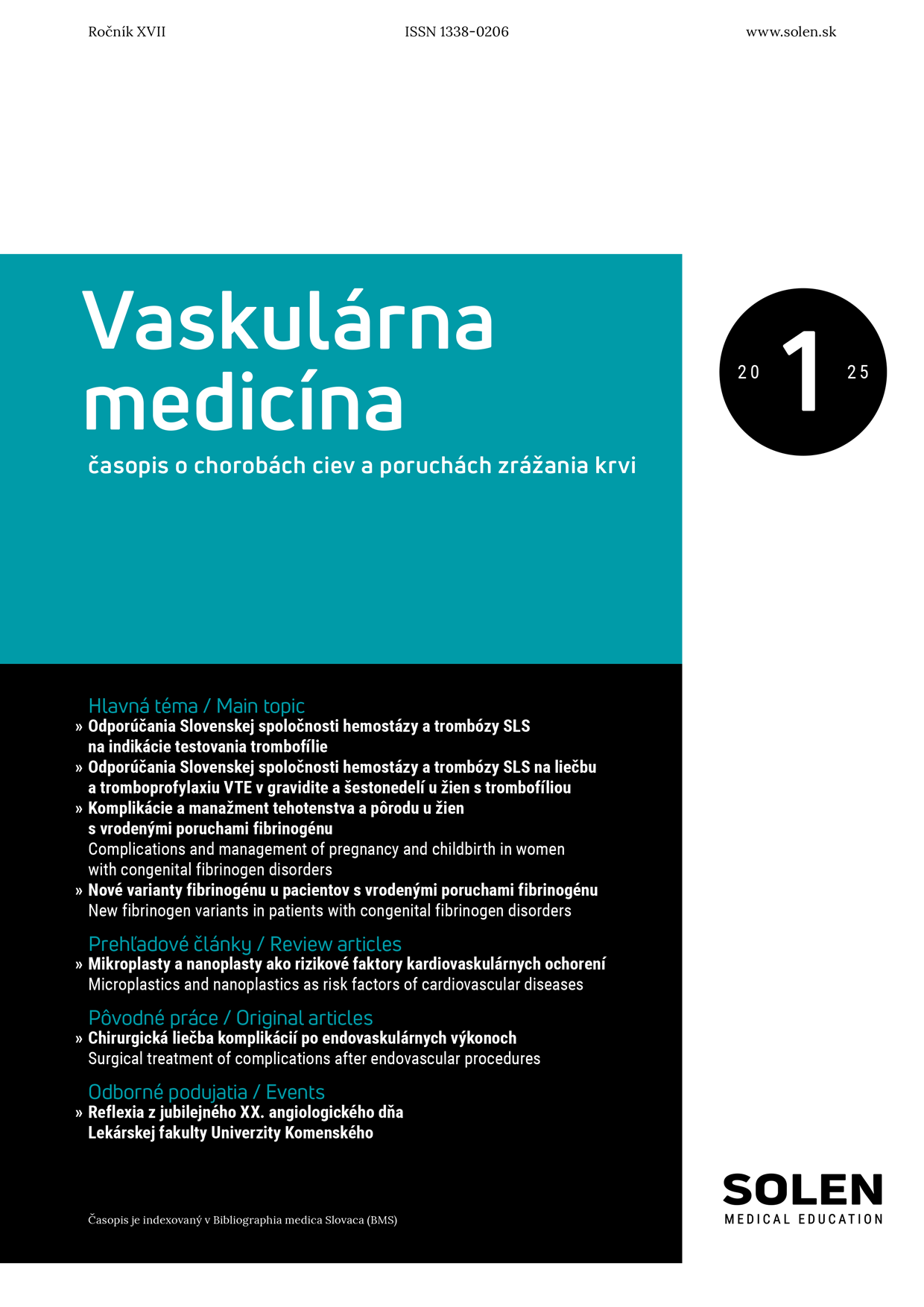Neurológia pre prax 1/2023
Autoimunitní onemocnění s pozitivitou anti‑CASPR2 protilátek – kazuistika
MUDr. Lubomír Jurák, Ph.D., MUDr. Zuzana Eichlová, MUDr. Eva Řeháčková, MUDr. Martin Jíra, MUDr. David Krýsl, Ph.D., MUDr. Martin Elišák, Ph.D., prof. MUDr. Petr Suchomel, Ph.D.
Autoimunitní onemocnění s pozitivitou anti‑CASPR2 protilátek je relativně vzácná choroba s charakteristickým nálezem anti‑CASPR2 protilátek v séru, případně v likvoru. Projevuje se řadou různých symptomů – z centrálního nervového systému (porucha kognitivních funkcí, epilepsie a mozečkové příznaky), z periferního nervového systému (hyperexcitabilita periferního nervu a neuropatická bolest) a z autonomního nervového systému (autonomní dysfunkce, insomnie a ztráta hmotnosti). Kazuistika: 61letý pacient byl přijat na jednotku intenzivní péče neurologického oddělení pro myoklonické záškuby abdominálního svalstva s intermitentní generalizací a myoklony pravé horní končetiny, poruchy chování, kognitivní deterioraci, intermitentní dezorientaci a agresi, bulbární syndrom, dysartrii a dysautonomii (hypersomnii, hypersalivaci, bronchiální hypersekreci a oběhovou instabilitu). Pro progresi poruchy vědomí hyperkapnické etiologie musel být pacient zaintubován a napojen na umělou plicní ventilaci. Na EMG byla prokázána axonální motorická polyneuropatie s postižením HKK i DKK. Na MR mozku bylo několik drobných ložisek gliózy paraventrikulárně vlevo. Ze séra i likvoru byla potvrzena výrazná pozitivita anti‑CASPR2 protilátek. Pro diagnózu autoimunitního onemocnění byla aplikována terapie v podobě i. v. methylprednisolonu a intravenózních imunoglobulinů. Pacientův neurologický stav se postupně lepšil až ke schopnosti vertikalizace, nicméně progredovala již jeho vstupní kachektizace i přes maximálně možnou výživu. Opakovaně došlo k poruchám vědomí na podkladě respirační insuficience. Při jedné z nich nastala i srdeční zástava s nutností kardiopulmonální resuscitace. Následně se opětovně objevily myoklonické záškuby. Pro zhoršení celkového stavu pacienta bylo rozhodnuto o nerozšiřování jeho terapie se zachováním maximálního komfortu. Při dalším respiračním selhání pacient zemřel. Komentář: Uvedená kazuistika pacienta s autoimunitním onemocněním s pozitivitou anti‑CASPR2 protilátek ilustruje na jedné straně pestré a často nespecifické klinické symptomy tohoto onemocnění, a na straně druhé jeho závažný průběh, který, i přes počáteční efekt imunosupresivní léčby, skončil fatálně. Včasné odhalení diagnózy spolu s časnou a agresivní imunoterapií jsou u těchto pacientů klíčové.
Kľúčové slová: CASPR2 protilátky, autoimunitní onemocnění, limbická encefalitida, imunosupresivní léčba, plazmaferéza
Autoimmune disease with positivity of anti‑CASPR2 antibodies – a case report
Autoimmune disease associated with anti-CASPR2 antibodies is a relatively rare neurological illness characterized by the presence of anti-CASPR2 antibodies in serum and/or CSF. It manifests with a variety of symptoms – from the central nervous system (cognitive impairment, epilepsy and cerebellar symptoms), from the peripheral nervous system (peripheral nerve hyperexcitability and neuropathic pain), and from the autonomic nervous system (autonomic dysfunction, insomnia and weight loss). Case report: The 61-year-old patient was admitted to the intensive care unit of our neurological department with myoclonic abdominal muscle twitching with intermittent generalization and right upper limb myoclonus, associated with behavioral change, cognitive deterioration, intermittent disorientation and aggression, bulbar syndrome, dysarthria, and dysautonomia (hypersalivation, bronchial hypersecretion, and circulatory instability). Due to progressive hypercapnia and loss of consciousness, the patient had to be intubated and connected to artificial pulmonary ventilation. EMG investigation demonstrated axonal motor polyneuropathy of both upper and lower limbs. Several unspecific gliotic lesions located in the white matter adjacent to the left cerebral ventricle were described on the brain MRI. Significant anti-CASPR2 antibody positivity was found both in serum and cerebrospinal fluid. Treatment with i.v. methylprednisolone and intravenous immunoglobulins was applied. With this treatment, the patient’s neurological status gradually improved to the ability of verticalization. However, his cachectization, which was already present on admission, progressed despite the maximal effort in nutrition therapy. Also, repeated episodes of respiratory insufficiency resulting in transitory impairment of consciousness occurred. One such episode resulted in cardiac arrest followed by successful cardiopulmonary resuscitation. However, myoclonic jerks reappeared afterward and the patient’s overall condition worsened. At this stage, it was decided not to further escalate and extend the treatment. Palliative treatment was commenced. The patient died during the following episode of respiratory failure. Comment: This case report of a patient with autoimmune disease associated with anti-CASPR2 antibodies highlights its multiple and often disease-unspecific clinical symptoms on the one hand, and on the other, its severe and ultimately fatal clinical course despite the initial effect of immunotherapy. Early diagnosis and early and aggressive immunomodulatory treatment are crucial in patients with this disorder.
Keywords: CASPR2 antibodies, autoimmune disease, limbic encephalitis, immunosuppressive therapy, plasmapheresis


